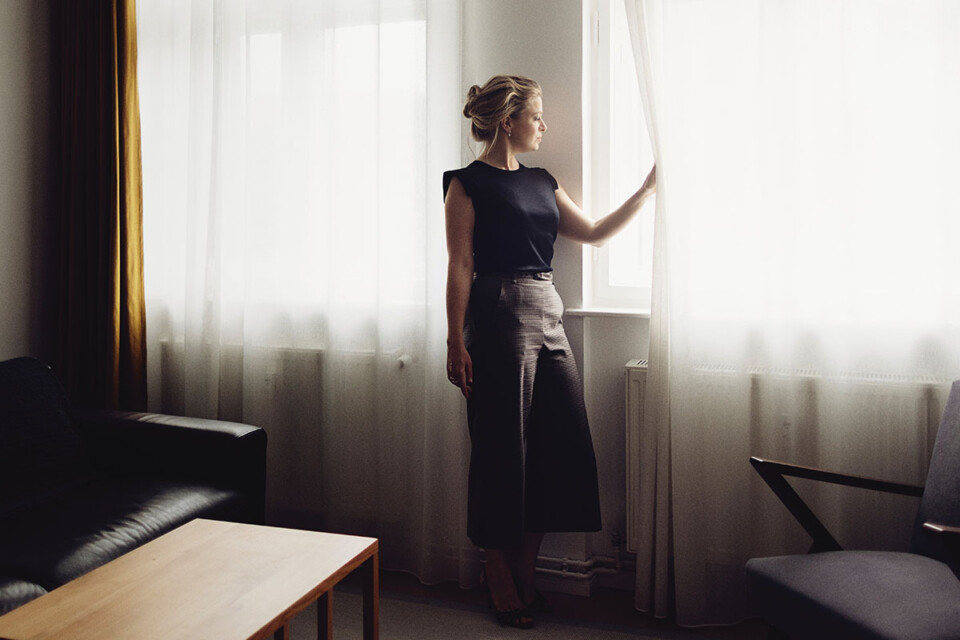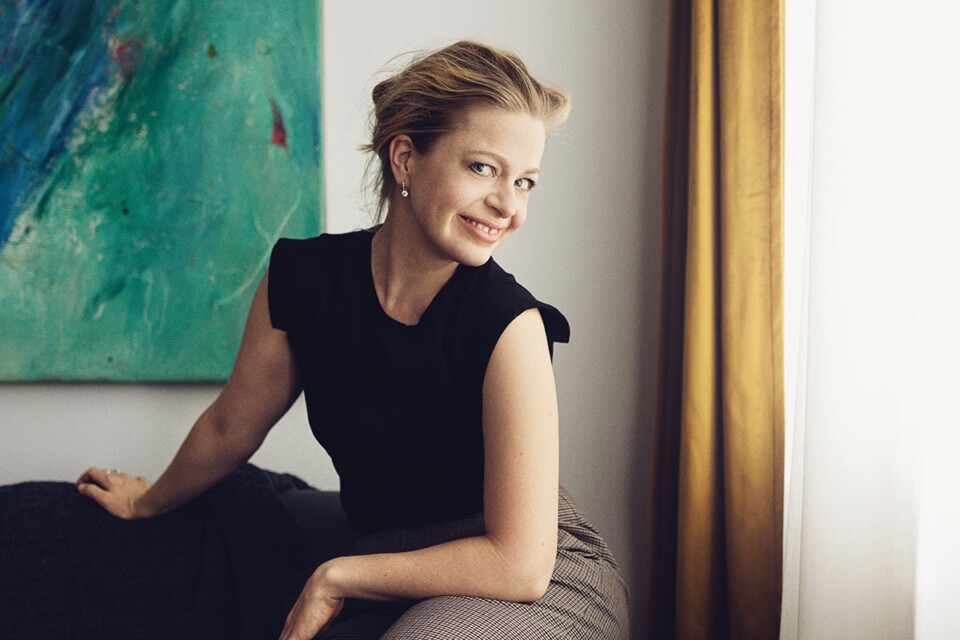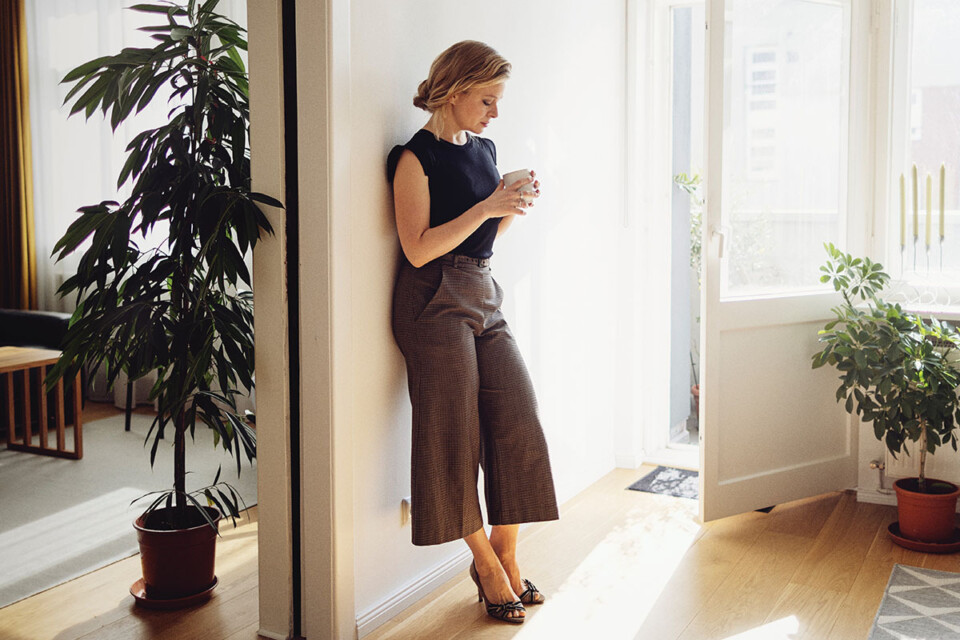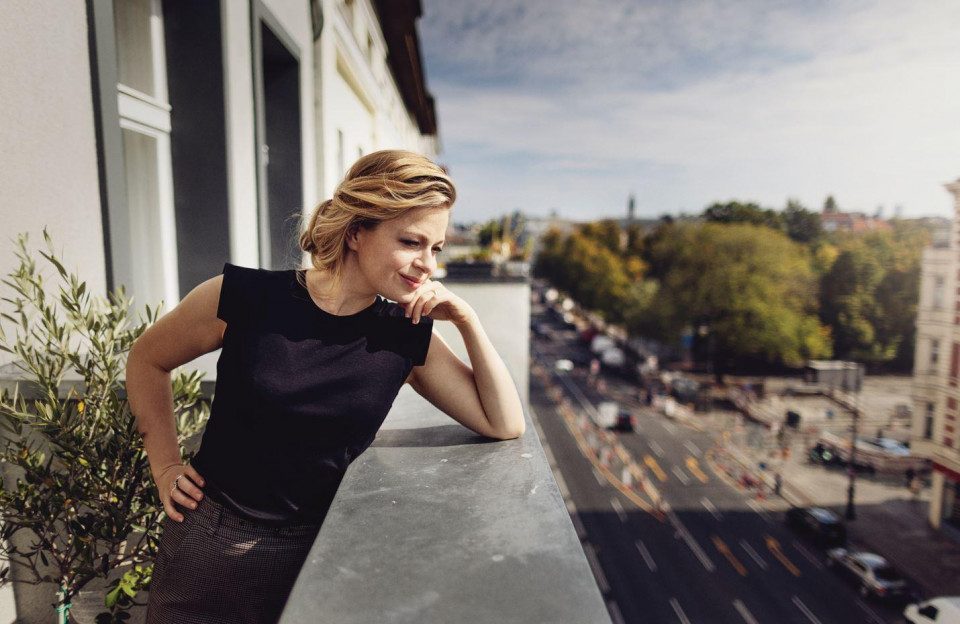Ahead of her season as Melbourne Symphony Orchestra 2023 Soloist in Residence, acclaimed Australian soprano Siobhan Stagg speaks to Stephanie Bunbury about becoming a star of the exhilarating world of opera.
For a singer constantly travelling across the world, the idea of home is tricky. Siobhan Stagg, who grew up in Mildura, studied in Melbourne and has now lived in Berlin for nine years, once joked in an interview that home was anywhere with a decent wi-fi connection. “I said it tongue-in-cheek but it’s true, isn’t it?” she says. “Because it allows you to connect with your loved ones and that’s what home is. But my concept of home is ever changing. The more time I spend in Europe, the more Europe feels like home. But of course, you never stop feeling Australian.”
So, while the Melbourne Symphony Orchestra – where Stagg will be MSO Soloist In Residence in 2023 – is the closest thing she has to a home orchestra, she thinks of the Deutsche Oper Berlin as her home theatre. She found her place as a singer in one of the world’s greatest opera houses, she says, almost by chance. When she was still a student at the University of Melbourne, she travelled to Austria for a six-week summer school in Graz – supported by the Opera Foundation Australia AIMS Award – and won the Meistersinger competition at the end of it. That victory secured her an agent. The next year she was off again on a round-the-world ticket that took her to New York for another six-week stint, this time for lessons and nightly visits to the Met, then on to Europe where the agent she had met in Graz helped organise a series of auditions. The last one was for the Deutsche Oper.

“It was just one of those fateful days. I was quite tired at the end of a long study trip and I was getting on the plane the next day to Australia; I remember being quite ready to go home. But that gave me a kind of laissez-faire, okay-just-go-for-it feeling in the audition and I just felt very free. They actually offered me the job in their Young Artists’ programme on the spot for two seasons in the future. And that worked out really well, because I had time to go and finish my Masters.” She left for Berlin in 2013, where she was eventually joined by her partner at the time (now husband) Nelson Yarwood – whom she met when he was studying viola, but who is now a primary school teacher.
It was straight into the deep end in Berlin: a revival of the Götz Friedrich production of the Ring Cycle. She sang Woglinde, whose lilting refrain is the first voice heard in Das Rheingold. There was very little rehearsal. “So the learning curve was vertical, because I hadn’t done fully-fledged opera before. I think that, within reason, you become ready based on the chance sitting in front of you. I was young and green, but I had a huge amount of support behind me.” Her dressing room, she recalls, was “wall-to-wall flowers” from Australia. The dressers, she laughs, couldn’t believe their eyes.
"I can't remember a sense of self before music was important to me. I always sang around the house."
Since then, she has sung repertoire from Brahms to Bernstein at venues from Melbourne to Moscow, winning glowing reviews describing her voice as “flexible and gleaming”, “bright”, “magical” and “luminous” and her performances as “gripping”, “seductive” and “outstanding”. In one month, Stagg’s schedule could see her singing Debussy’s Ariettes oubliées – orchestrated by Brett Dean – with the Australian World Orchestra under Zubin Mehta at the Edinburgh International Festival and the BBC Proms; a few weeks later taking to the stage in Belfast singing Violetta in La Traviata.
Her time in Australia will begin in Sydney where she will make her debut with the Sydney Symphony Orchestra, followed by her Melbourne residency – which will also feature the Debussy Ariettes oubliées and Richard Strauss’ Four Last Songs. She will also give a masterclass as part of the MSO’s Music & Ideas program, and after that, Cleveland. After almost two and a half years, it will be quite a homecoming.

Growing up in Mildura, an unlikely seedbed for a future opera singer, meant Stagg didn’t have great exposure to the kind of music she is singing now. “But I remember performing as a child. I would copy anything I heard on the radio and put on concerts in our kitchen.” There is a favoured home video of a birthday dinner, she says, where she is poking her head from behind the curtains, holding a spoon as a microphone, clamouring for the camera. She then leaps out of her home-made proscenium and sings a song she no longer remembers; she suspects she made it up. She was five. “I can’t remember a sense of self before music was important to me,” Stagg says. “I always sang around the house. It was often musicals or things I’d seen on TV, Carols by Candlelight events or the opening of the Olympic Games. I’d watch them over and over again and try to copy the singers, learn the songs.” They say it takes 10,000 hours of practice to master a skill. She put in those hours. “Looking back, I was training myself with a certain amount of discipline, but without realising it. It just felt like fun for me.”
When she went to Melbourne to study, she had never heard a symphony orchestra up close and was yet to see a fully-staged opera. “So I had a lot of catching up to do, but my ears were trained and my musical creative soul was somehow ripe and ready to soak that all up.” She was also ahead in at least one respect: unlike many of her contemporaries, she was used to performing. A singer in a country town gets a lot of gigs. She had led church choirs, sung at school fetes and community events by the city’s ornamental lakes.
"The more time I spend in Europe, the more Europe feels like home. But of course, you never stop feeling Australian."
The church organist in Mildura had urged her mother to ensure she learned music theory and sightreading, which also stood her in good stead when she joined the choir at Trinity College. “It’s one of those traditional choirs where you do Evensong every Sunday and you get the repertoire on Wednesday, which is quite a fitness training for sightreading and music literacy.” The choir also recorded with ABC Classics: she was often asked to sing solos. “Then I started doing concerts on the strength of that, because people began knowing my name from that repertoire.”
It begs the question, how has she learned – and how does she still learn – such volumes of music so rapidly? “There’s no magic trick,” she shrugs. “Early in my career, breaks came from learning things quickly. One of my big breaks was in 2015, when I learned the entire title role of Orpheus by Luigi Rossi in five days for the Royal Opera House production at Shakespeare’s Globe. But it’s my life. So I don’t know how to answer the question ‘how do I learn the repertoire?’. It’s like asking someone how they breathe.” Actually, she does think about how she breathes; she even recommends a book about it – Breath: the New Science of a Lost Art by James Nestor – clarifying it isn’t just for singers. Overall fitness is important; the life of a travelling artist can be gruelling, physically and mentally. She runs; she swims. “I don’t focus so much on guarding my voice specifically, because that makes you become neurotic and very detached from the overall process,” she says. “When you’re on stage, you’re not just a voice. You’re a human in a body with a mind and a soul and these things have to come together. So I just pay a great deal of attention to my overall health and wellbeing.”

Running is a recent thing. As someone who defined herself in childhood as hating sport, who was always picked last for class teams, it has been a game changer. Over lockdown, she has come around to thinking that sport and art are similar in many ways. It struck her when she was watching the Australian Open on German television that the athletes were also performers, also striving for excellence, and were compelling in the same way as other kinds of performers. “We feel moved by watching humans reach their full potential. It elevates all of us and showcases moments of joy.”
Any art, she says, works the same way – or it doesn’t work at all. She sees no real distinction between genres or between art forms. It’s good or it isn’t. But ultimately it must connect with the audience. Stagg is part of that audience, too. “Music is my lifeblood. I can’t imagine a world without music. And you know, COVID-19 was a challenging time for everyone for lots of different reasons but one of the hardest things for me wasn’t that yes, I had lost my job and my way of connecting to the world but that I am also an avid concert-goer. I need music as much as I need air in my lungs, as much as I need food. It feels essential.”
Photography by Nikolaj Lund
